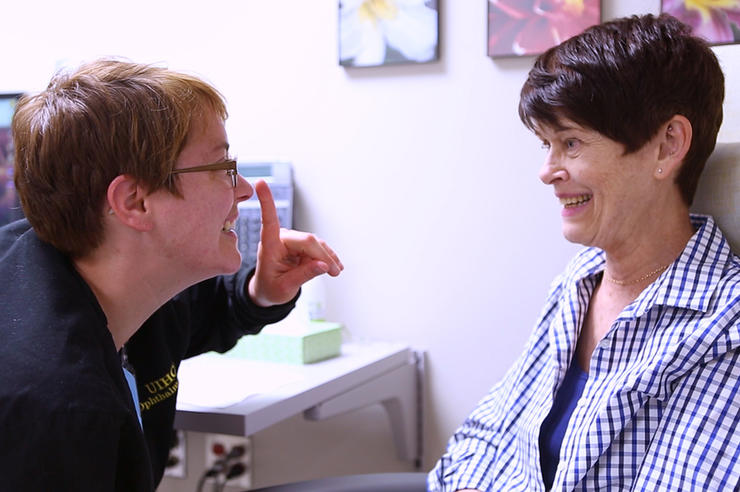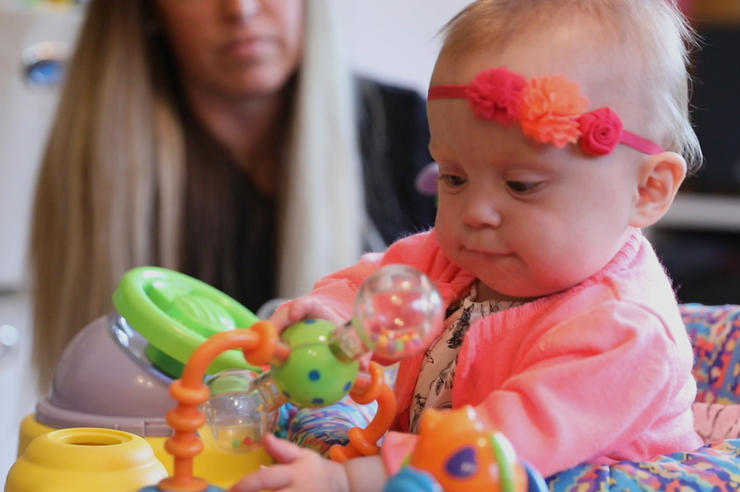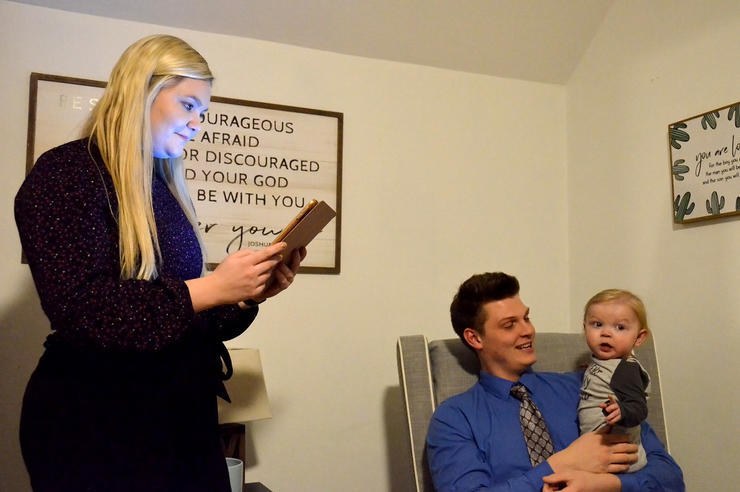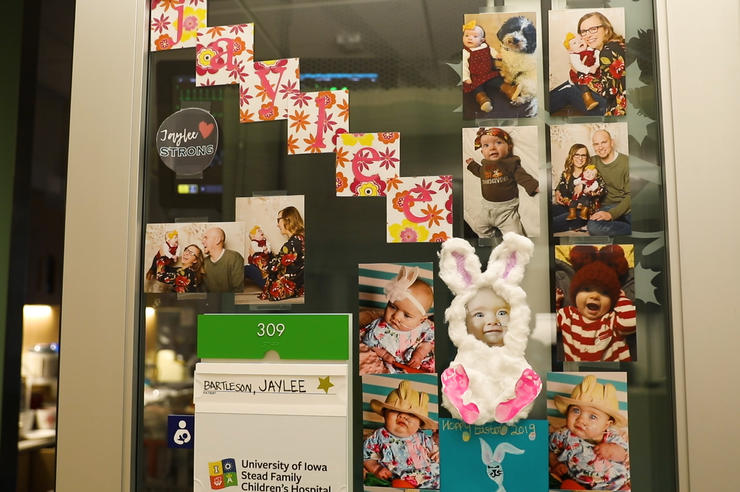A place to be heard
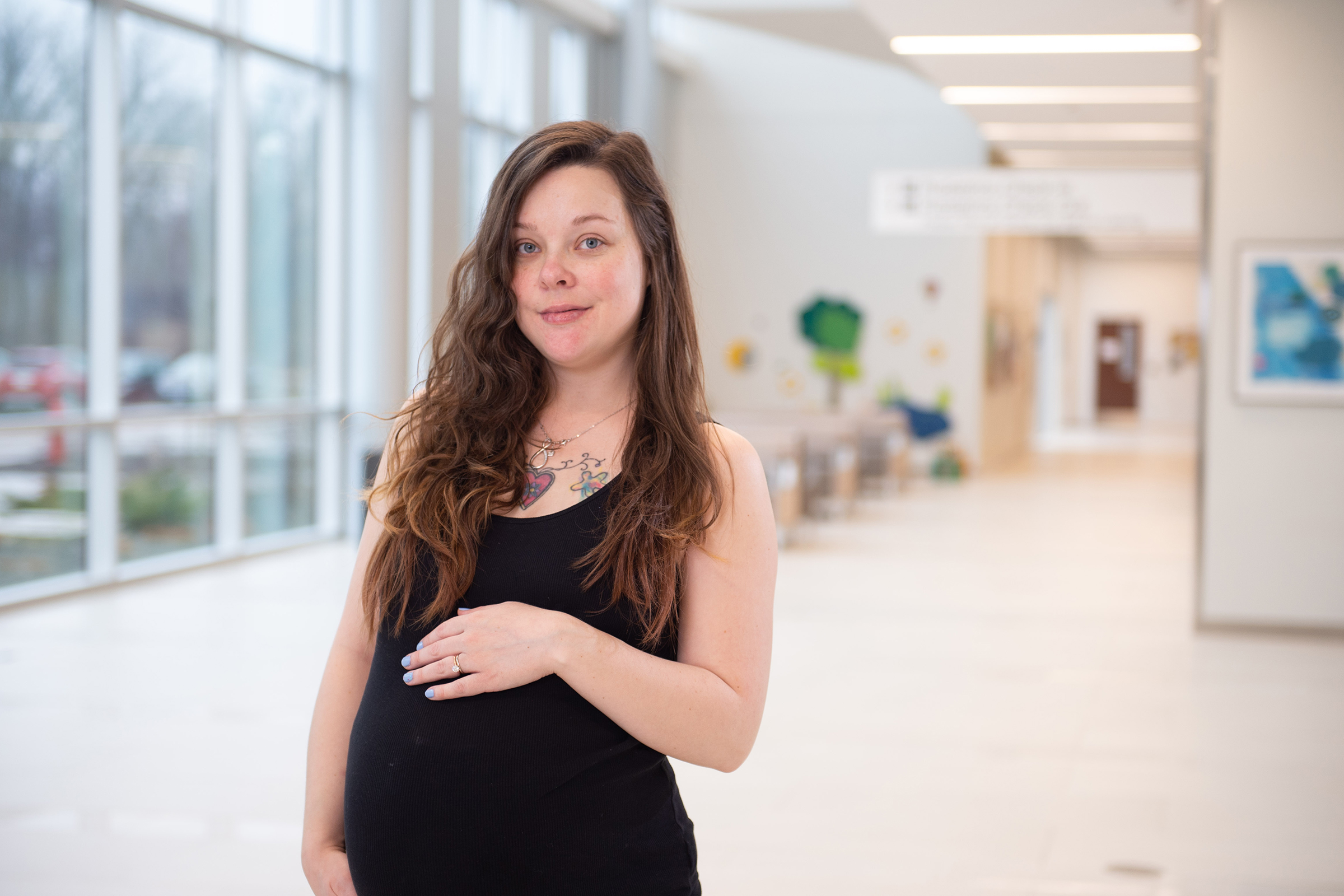
A spur-of-the-moment marriage, a new home, and a baby on the way created a perfect storm of stress and uncertainty for Whitney Schutten. She was two months pregnant and losing a sense of control over her life.
“It feels like a downward spiral,” she says. “At first, there are a few things you notice in the peripherals that are going wrong, and then it just seems like all of those things, instead of being few and far in between, are happening on a daily basis. Then you start to feel this lack of control, and you’re watching life happen.”
Schutten, who lives in Fairfield, Iowa, had been diagnosed with depression before her pregnancy and sought treatment as needed. She could easily recognize the symptoms coming on during her pregnancy, but she couldn’t turn to her typical coping tools, such as taking an antidepressant or having a drink to “take the edge off.”
The University of Iowa Hospitals & Clinics Women’s Wellness and Counseling Service (WWC) provides comprehensive care for women 18 and older who are experiencing mental health concerns related to pregnancy, childbirth, or reproductive health. Specialized services are provided by psychiatrists, psychologists, and other clinicians.
And pregnancy can bring on completely new physical and emotional discomforts.
“Being pregnant, you already feel so trapped in your own body,” she says. “You’re less flexible physically. You’re less in control of your emotions. There’s another life growing inside of you. There’s also this constant worry of ‘Am I just being selfish?’”
To help find answers, Schutten turned to the Women’s Wellness and Counseling (WWC) Service at University of Iowa Hospitals & Clinics, which provides specialized care for women with mental health concerns related to pregnancy, childbirth, or reproductive health.
A safe place for pregnant women or new moms
Mood disorders that occur during and after pregnancy are common but rarely discussed, says Kathryn Farley, PhD, a postdoctoral fellow in the WWC. Postpartum depression affects roughly one in five women, and the rates for depression during pregnancy are slightly lower, although similar, she adds.
“The perinatal period of women’s lives, and particularly the postpartum, is often associated with high caregiving demands,” Farley says. “These very real demands, coupled with ideals of being a flawless parent, often compromise a woman’s care for herself. Extended periods of self-neglect can almost certainly contribute to mental health concerns.”
“In Iowa, especially in a small town, it’s hard to shop around and see different therapists because there’s such a high demand for them and so little availability between them. It was nice being seen here. I felt a level of professionalism, and I wasn’t being rushed in or out. I’m genuinely cared for here.”
The WWC is the only specialized therapy and medication management program for pregnant and postpartum women in Iowa and one of only 34 programs across the country. Some patients travel two to three hours from their homes to receive care in the clinic.
A good portion of the women referred to the WWC may be driving to UI Hospitals & Clinics to attend high-risk obstetrics appointments, visiting their child in the Neonatal Intensive Care Unit, or simply receiving routine care.
For those who can’t make it to appointments in person, the WWC is also piloting a postpartum telehealth program for women diagnosed with depression or anxiety.
“We are fortunate to be at an institution that offers such specialized care, bringing patients from all across the state,” Farley says.
Digging deeper to find answers
Schutten was already traveling nearly an hour and a half to receive her obstetrics and gynecologic care in Iowa City, and then added psychotherapy into the mix with Farley.
Farley typically sees patients with mood and anxiety disorders, grief and loss issues, trauma, and adjustment concerns. Nearly half of her patients travel from outside of the Iowa City area for therapy.
“Therapy is a place to be heard, reflect, and shift perspective,” Farley says. “I always tell my patients that the most important part of therapy is the relationship you have with your provider—a good relationship is the foundation in which the ‘work’ in therapy is born from.”
Schutten had seen a number of therapists in the past, with mixed experiences, and felt limited with her selection at home.
“In Iowa, especially in a small town, it’s hard to shop around and see different therapists because there’s such a high demand for them and so little availability between them,” Schutten says. “It was nice being seen here. I felt a level of professionalism, and I wasn’t being rushed in or out. I’m genuinely cared for here.”
She describes therapy as a guided self-exploration being met with understanding. She feels personally catered to in the WWC, knowing the clinic was specialized in helping women going through similar struggles.
“[Farley] was able to listen and then empathically or compassionately nod and let me know that she heard me. She knew exactly how to respond,” Schutten says. “It helped me dig deeper and find more meaning behind what I was experiencing.”
And Schutten was ready to do the work, to listen, and be receptive to the help. Over the course of her pregnancy, she gained more hope.
“I understand, at least, why I’m feeling the things I’m feeling and that those feelings are valid,” she says. “I can see the line between what feelings are caused by the pregnancy, what is the depression, and what is the reality. I have more perspective.”
Farley has noticed that dedication, too.
“Whitney is incredibly insightful—she articulates her emotional experience in a way that is understandable and beautiful, with pinpoint accuracy,” she says. “It is clear that Whitney has a real understanding of the natural vulnerability of the human experience. Her ability to articulate her emotional experience, coupled with her willingness to be vulnerable with others, is what I see as her greatest strength.”


